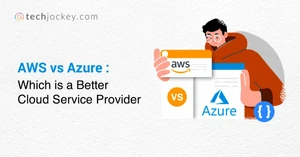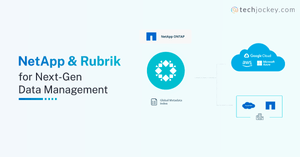What are Cloud Managed Services?
Cloud management services include a range of solutions that facilitate the management of an organization's cloud resources and infrastructure. These services, often referred to as managed cloud, are provided by third-party organizations and can include various tasks such as migration, configuration, optimization, security, and maintenance. The primary goal is to help businesses optimize the advantages of cloud services while reducing internal time and expenses.
Managed cloud solutions are available for public, private, and hybrid cloud environments, catering to organizations at any stage of their cloud adoption journey. Many businesses opt to engage with these services even before migration to ensure the correct configuration and determine which cloud resources best suit their needs. Cloud managed services go beyond technical aspects, offering services like 24/7 help desk support and operations management. They offer extensive control over an organization's cloud platform, covering deployment, management, migration, maintenance, and optimization.
Why Choose Cloud Management Services?
Effective cloud management is paramount as organizations increasingly embrace cloud solutions. Here are some factors that best tell why to choose cloud-managed services;
- Mitigating Operational Risks: When choosing a cloud service management solution, the goal is to find a partner capable of managing hybrid environments and resources effectively. An ill-fitting strategy can introduce operational risks that hinder the seamless functioning of cloud infrastructure.
- Addressing Security Concerns: Public cloud environments, in particular, can expose organizations to heightened security risks. Therefore, it is crucial to establish a strong security approach to protect against potential risks.
- Optimizing Costs and Value: Inadequate service support during a cloud migration can result in unexpected delays and increased expenses. A well-chosen cloud-managed service provider can help mitigate these challenges, ensuring a smoother transition and optimal value from cloud investments.
Pros & Cons of Cloud Management Services
When considering cloud data management services, it's important to thoroughly assess the pros and cons. Understanding these aspects can help you make an informed decision and ensure that your choice aligns with your organization's goals and needs:
Pros of Cloud Management Services
- Resource Optimization: Cloud Managed Services (MCSPs) excel in helping organizations make the most of their cloud resources. They assist in selecting the right services for specific workloads, optimizing pricing models, and configuring services for optimal performance while managing costs effectively. MCSPs also provide valuable performance metrics and recommendations for enhancing configurations.
- Integration Support: MCSPs play a pivotal role in integrating cloud services, especially in complex setups like hybrid or multi cloud management environments. They ensure seamless connections between cloud resources and existing on-premises systems, guaranteeing smooth accessibility for employees, users, and applications.
- Predictable Spending: Many MCSPs offer tiered subscription support, allowing for budget flexibility. Some even provide credit-based systems, enabling organizations with fluctuating or seasonal demands to access more support during peak times while reducing expenses during slower periods.
Cons of Cloud Management Services
- High Cost: While MCSPs provide predictability in billing, their services come at a cost that can significantly impact your cloud budget. The expense varies depending on the level of services and system complexity. It's essential to meticulously strategize your budget to prevent unforeseen excessive expenditures.
- Optimization vs. Performance: Optimization often involves using lower-tier data storage or performance options, which may not be suitable for all data and applications. It's essential to thoroughly discuss optimization recommendations with your provider.
- Security and Privacy Risks: Cloud service management providers operate on a multi-tenant model, which means they manage multiple customers' data in a shared environment. While reputable providers maintain strict security measures, there's a potential risk if another customer's data or actions affect your system. To mitigate this, it's vital to assess your provider's security measures and take steps to safeguard your data.
Benefits of Managed Cloud Services
Managed Cloud Services offer a range of benefits that can enhance your cloud infrastructure and streamline your operations, such as;
- Robust Infrastructure: Backed by 24/7 administration and an effective network infrastructure, Managed Cloud Service Providers deliver strong infrastructure assistance. They have the capability to supervise, examine, generate reports, implement updates, incorporate, and synchronize network operations with your fundamental business goals.
- Centralized Services and Applications: Cloud data management service providers oversee all applications and offerings at a central data center, allowing for remote data retrieval, heightened efficiency, efficient resource utilization, sufficient storage, and backup, among other benefits.
- Service Level Agreements: Efficient Service Level Agreements (SLAs) guarantee enhanced control over service levels, aiding your business in achieving service continuity.
- Data Safety and Recovery: Cloud-managed data center services providers ensure the security of data and prompt access through timely backups and swifter recovery across all cloud services and applications, accomplishing the primary goal of business continuity.
- Quick Response Time: MCS providers shoulder the responsibility and guarantee a prompt response time in the event of any problem, conserving your valuable time and energy.
- Interfacing: Cloud MSPs lead the way in addressing cloud vendor matters in case of critical situations. They assume accountability for resolving problems and offer advice on Cloud cost management and the automation of critical procedures.
- Planned Investment: MCS providers provide assistance in devising your IT service budget. You can select a customized monthly service plan to align with your organizational IT expenses and enhance your investment in IT support.
- Maintenance: Through MCS, you can access more options for cost savings and easing maintenance burdens, relieving your organization from costly network maintenance.
- Timely Updates: Moving to a cloud environment and relying on cloud-managed data center services ensures that your data centers remain current with the most recent technological advancements.
- Integrated Services: MCS services provide adaptable solutions tailored to your business needs, including pay-per-usage or payment options, assisting you in prioritizing your business expenditure. Additionally, these services encompass integrated solutions like security protection, the establishment of new services, and the monitoring of networks.
Top Cloud Managed Services Providers
Here are the details of top 10 Cloud Managed Services Providers, along with their features and price;
| Software Providers | Services | Price |
| 2nd watch | Simplified Day 2 operational services, Flexibility for managing single and multi-cloud infrastructure | Price On Request |
| 8K Miles | Cloud transformation solutions, Cloud security services, Migration services, Big data analytics solutions, Mobility solutions, IoT (Internet of Things) solutions | Price On Request |
| Accenture | Compute, Network, Digital workplace, Database infrastructure, Security, Service management | Price On Request |
| AllCloud | SOC/Managed Security, Disaster Recovery-as-a-Service, NOC/Fully Managed AWS, Cost Management/FINOPS | Price On Request |
| Mission | Data, Analytics & AI/ML, AWS Migration, AWS Modernization, Software & Application Development, AWS Security & Compliance, DevOps & Automation | Price On Request |
| Capgemini | Managed cloud services, Cloud monitoring and support services, Cloud governance and cost management services, Multi-cloud and hybrid cloud solutions, Industry-specific cloud solutions, Digital transformation services | Price On Request |
| Rackspace | Cloud Migration Services, Infrastructure build-out services, Security, DevOps services, Backup and disaster recovery (DR) planning | Price On Request |
| Onica | Access to dedicated pods for ongoing infrastructure and DevOps Engineering, Automated monitoring & reactive response for Elastic Engineering Pods, Supporting traditional operations as you evolve | Price On Request |
| Trianz | Disaster Recovery as a Service (DRaaS), DevOps and Applications Management, Cloud Security, Cloud Optimization, Predictive Cloud Consumption Analytics | Price On Request |
| Deloitte | Infrastructure Management, Service Management, Application Management Services, Automation and DevOps, Cyber Security | Price On Request |
Key Considerations When Choosing a Managed Cloud Services Provider
Choosing the right Managed Cloud Services Provider can be a daunting task, to make an informed decision, several crucial factors should be taken into account;
- Skills and Expertise: Your chosen provider should possess in-depth knowledge of the cloud services you plan to use, industry best practices, and the ability to integrate critical tools and applications seamlessly. Ask questions such as their familiarity with specific cloud services, their client base, and their expertise in your industry's tooling and workflows.
- Security and Compliance: Security and adherence to regulations are paramount when assessing MCSPs. Assess the provider's security expertise, certifications, and their specialization in compliance regulations. Ask about the steps taken to protect client information and deter unauthorized entry.
- Transparency and Control: Trust is a vital component when relying on cloud data management services to manage your cloud resources. Seek a provider that is transparent about their service handling processes. Ensure they are willing to collaborate with your in-house teams and share performance reports and metrics. Ask about their communication methods for changes, maintenance, and issues, as well as the training they offer to enhance your in-house skillsets.






















